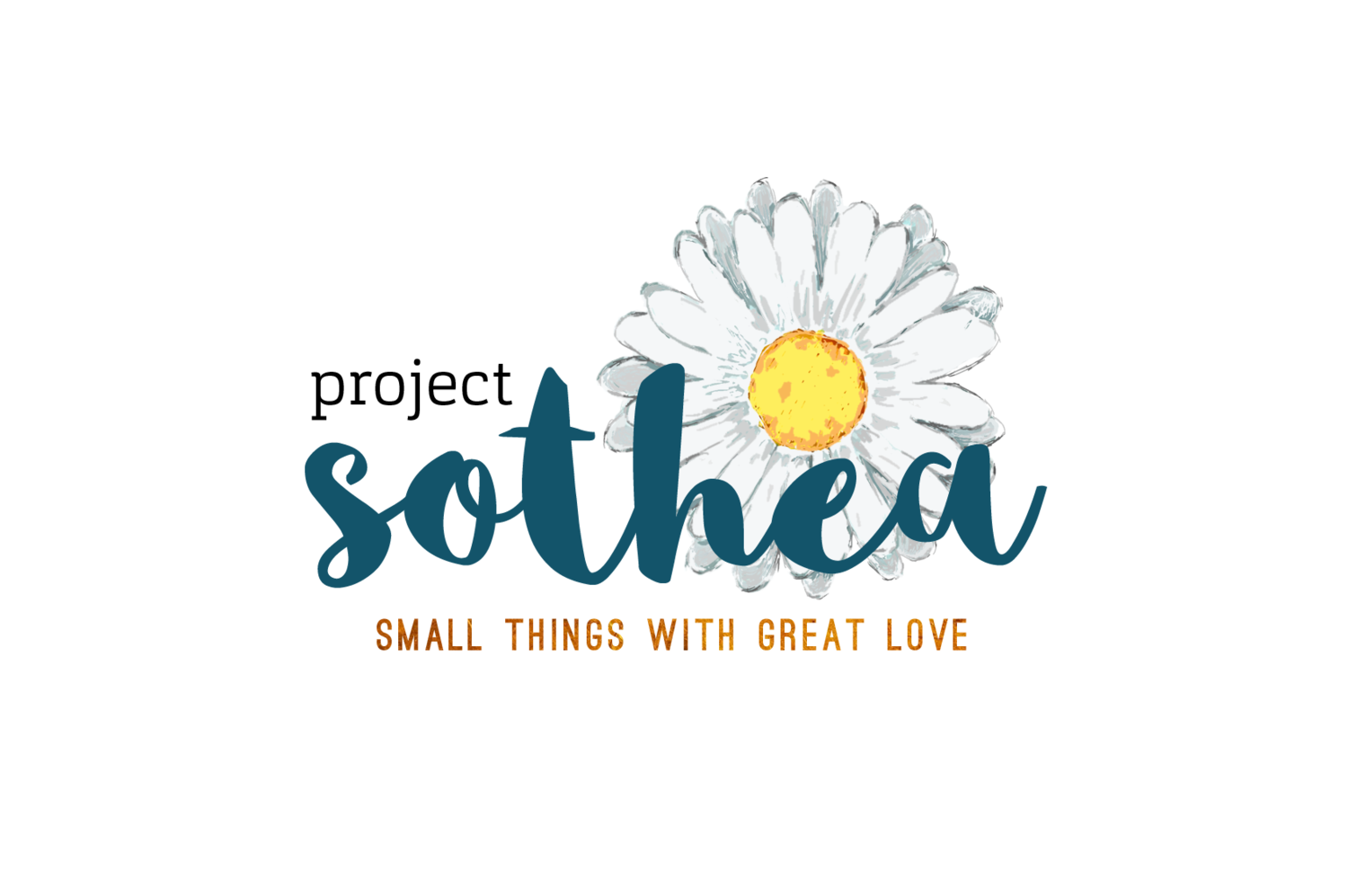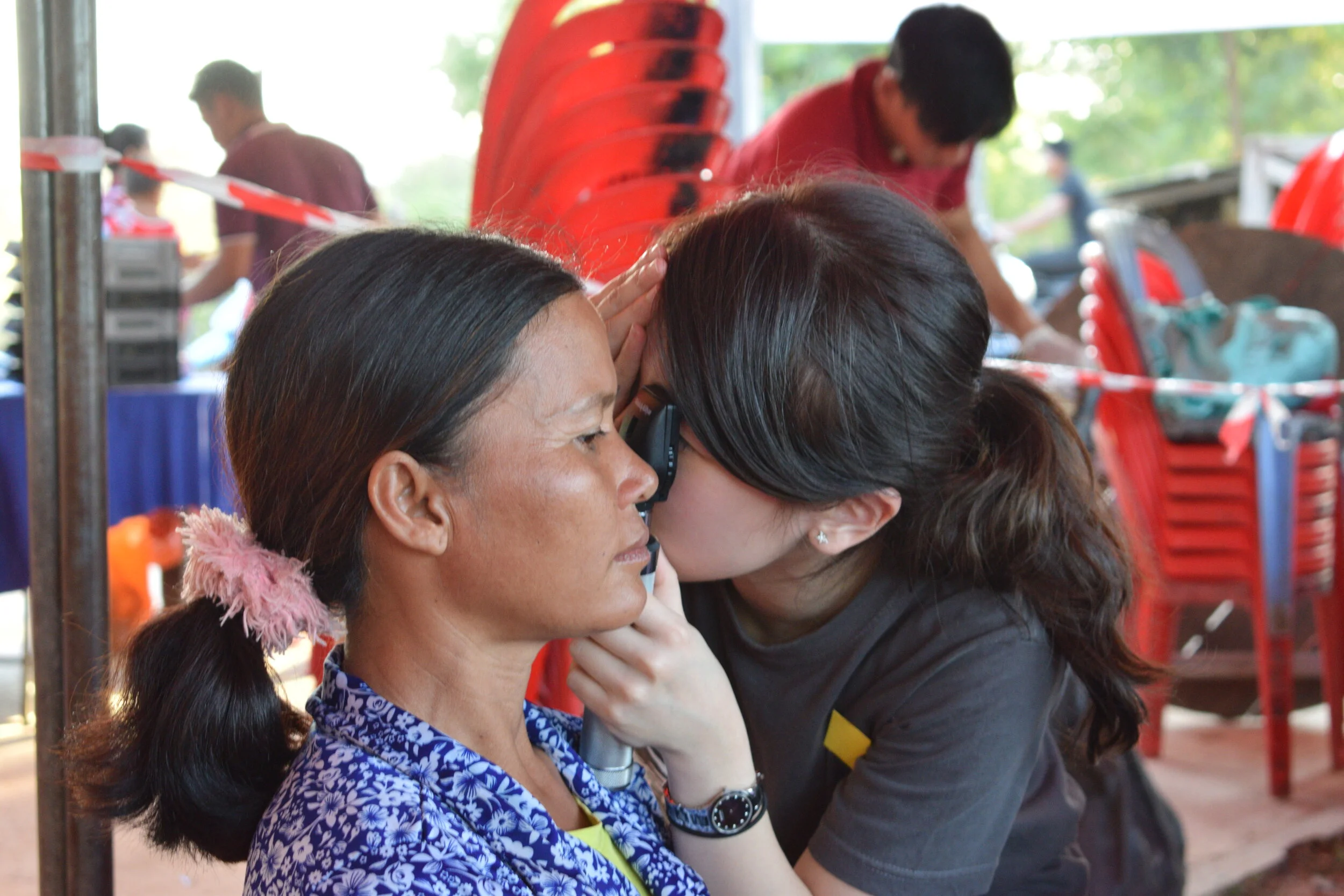Purpose of health
Project Sothea’s Health Committee aims to constantly improve our health screening modalities and ensure the sustainability of Project Sothea’s efforts. The Health Committee also analyses the health screening data collected to keep tabs on the metrics of our health screenings. Key areas that the Health Committee looks into are:
Health Screenings
Referrals
Doctors’ Visits
Health Partnerships
Doctors’ Recruitment
Health Screenings
Since 2010, medical professionals across various disciplines and organisations have joined the project on our annual trips to Battambang. Each year, the project offers free health screenings to villagers who present with acute or chronic conditions across all age groups.
Purpose of Health Screenings
Provide immediate treatment of acute illnesses and problems
Set up a centralised electronic health database for longitudinal tracking of patients – utilising Biometrics System with facial recognition (See Research and Development for more)
Characterise disease profiles and observe disease trends to customise our interventions to the target population
Refer patients with chronic conditions to local hospitals and reconnect them with the local healthcare system
Refer emergency cases to local hospitals
Health Screening for villagers
Fig. 1 Health Screening Flow (Village Health Screening)
The health screenings that we hold each year at our villages target both children and adults. This process includes:
Basic health parameters
Consultation and Treatment
Pharmacy and General Health Survey
Evaluating the effectiveness of our screenings for future improvement
Monitoring relevant trends in the village and hence better catering to their needs
Referrals to hospitals for chronic and emergency cases
2. Referrals
Project Sothea’s referral system aims to enable patients to seek out appropriate medical care, which they often forego due to financial constraints or the physical distance necessary to access advanced medical care. For cases that cannot be managed with the drugs in our inventory, or upon doctor’s recommendation, villagers are referred to hospitals in Battambang city for further treatment. Some of the criteria for referrals are as follows:
Emergency cases that would benefit from a higher level of medical care
Chronic conditions that can be resolved with a one-time cost-effective treatment
Acute conditions requiring further diagnosis that could significantly affect treatment
Every year, Project Sothea refers more than 30 villagers for a range of conditions ranging from cataracts, fractured bones, and suspected ischemic heart disease.
Our project is currently working with village leaders and partner NGOs to establish a referral system to check up on patients that have undergone treatment. This is part of our project’s wider aim to ensure sustainable long-term health outcomes for the villagers that we serve.
3. Doctors’ visit
Apart from our conventional health screening efforts in the villages, our door-to-door health screening initiative started in 2015 aims to bring health screening services to villagers who are either too ill to make their way to the main health screening site, or face mobility issues. Our target beneficiaries for this programme mainly comprise stroke patients, patients with physical disabilities, pregnant women, critically ill patients, and villagers with neuromuscular disorders or lower limb injuries. These door-to-door services increases the outreach of our health screening efforts, making health services more accessible to villagers who are unable to make it to our screening site , while also serving as an educational opportunity for both Singaporean and Cambodian medical students to learn more about the various diseases in a rural setting.
During our 2020 December Trip, we used our Door-to-Door survey outreach programme as an opportunity to identify households that may not be able to travel down to the health screening site. Thereafter, we sent teams of doctors and medical students to visit these identified houses on two of the health screening days during the 2020 December trip.
4. Health Partnerships
Partnerships with NGOs / other organisations
Since our move into new villages in 2019, the project has formed strong partnerships with local Cambodian NGOs for our village health screening. The project partnered with HelpAge Cambodia in Srae Ou village. Our partner NGO provides logistic support and augment the project’s referral and follow up system, which is a key component of the project’s sustainability plan. As the project only conducts screenings in our December Main Trips, our partner NGOs also follow up closely with our patients outside of our main trip. Project Sothea recognises the importance of maintaining close ties with our partner NGO and we are in the midst of discussions to align our goals to ultimately support our beneficiaries. This includes adding health screening modalities that our partner NGO suggested like physiotherapy and advanced eye screening modalities to screen for eye conditions such as Glaucoma and Diabetic Retinopathy.
Partnerships with Clinics
The project maintains long term partnerships with private clinics in Battambang city, such as Handa Clinic, Yi Kuok Clinic and Sovann Clinic. Our partner clinics form an integral component of our referral and follow up system, and provide generous discounts to our villagers when they seek treatment.
5. Doctors’ Recruitment
We begin our doctors’ recruitment around mid July for our December Main Trip. Project Sothea reaches out to doctors who are (non exhaustive): alumni of our project, from Singapore Medical Association, department heads or through personal contacts. Our selection includes doctors who are experienced and specialised in certain areas such as pediatrics or geriatrics to further improve our focus during health screenings. Some of our doctors have been following us for many years and we remain extremely grateful for their continued support.







